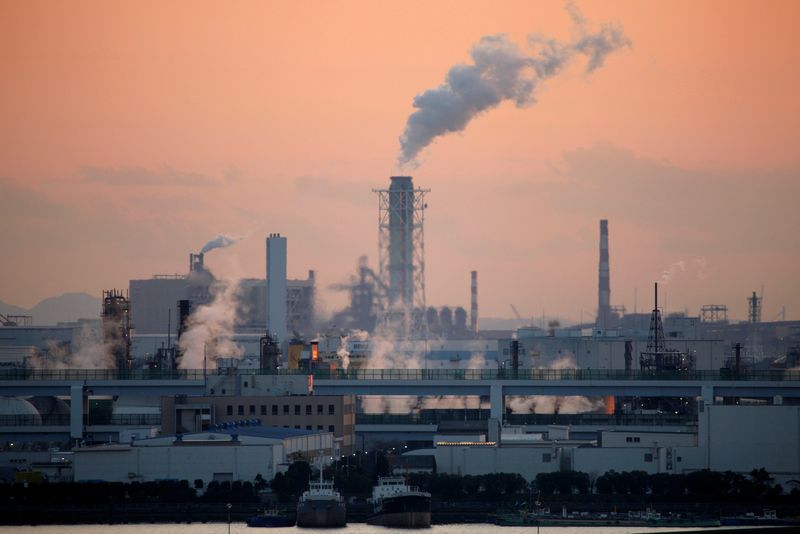By Daniel Leussink
TOKYO (Reuters) - Japan's government cut its view on capital spending in November for the fifth time this year as companies trimmed investment, and said overall economic conditions were still severe due to the coronavirus pandemic.
The world's third-largest economy rebounded sharply in the third quarter from the COVID-19 hit, largely thanks to stronger consumption and exports, but a resurgence in infections at home and abroad is weighing on the outlook.
"The Japanese economy remains in a severe situation due to the novel coronavirus, but it is showing signs of picking up," the government said in its November economic report.
The government said the impact from policy measures at home and improvement in activity overseas supported hopes for a continued rebound in the economy.
But it also warned "full attention" should be given to further risks from the pandemic, at home and abroad.
Economy Minister Yasutoshi Nishimura warned that any increase in coronavirus infections could weigh on consumer sentiment and overseas economies, posing a downside risk to consumption as well as exports and output.
Prime Minister Yoshihide Suga instructed his cabinet earlier this month to compile a package of stimulus measures to cushion the blow from the pandemic and push forward structural changes in the economy.
"We want to put together measures while carefully watching the (coronavirus) impact, especially on regional economies and everyone working in the tourism sector," Nishimura said.
Among key economic elements, the government said business expenditure has been decreasing, slashing its assessment of the component for the sixth time since last upgrading it in September 2018.
Japan has seen relatively low capital spending growth compared to other major countries over the past 15 years, which is a reflection of the expected growth rate of the domestic market, the official said.
Japan needs solid capital spending to offset risks to its export-reliant economy from abroad.
The government upgraded its view on output, saying it was picking up due largely to solid car and transport equipment production.
It left unchanged its assessment of the other remaining components in the report, such as exports and employment conditions.
